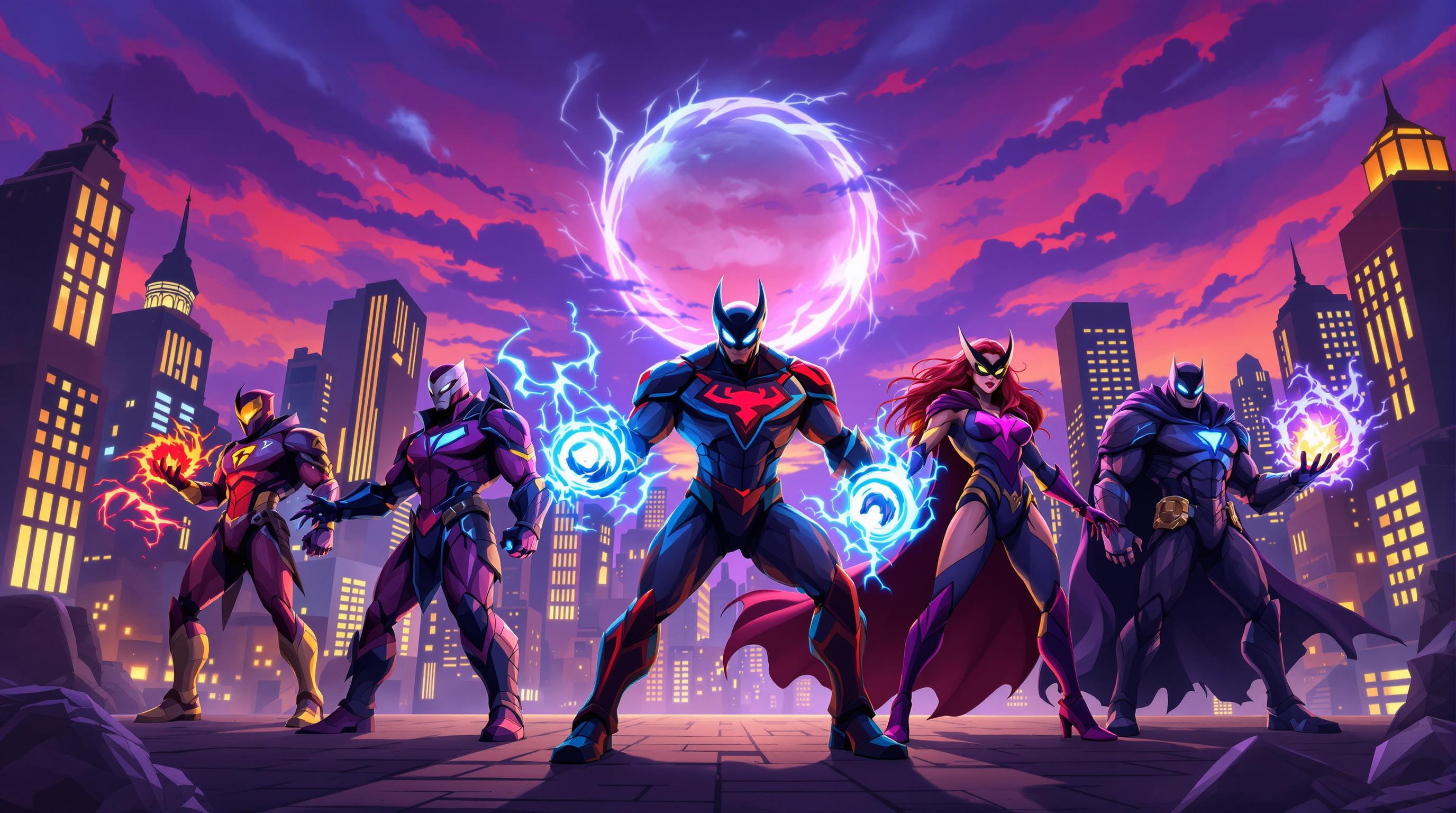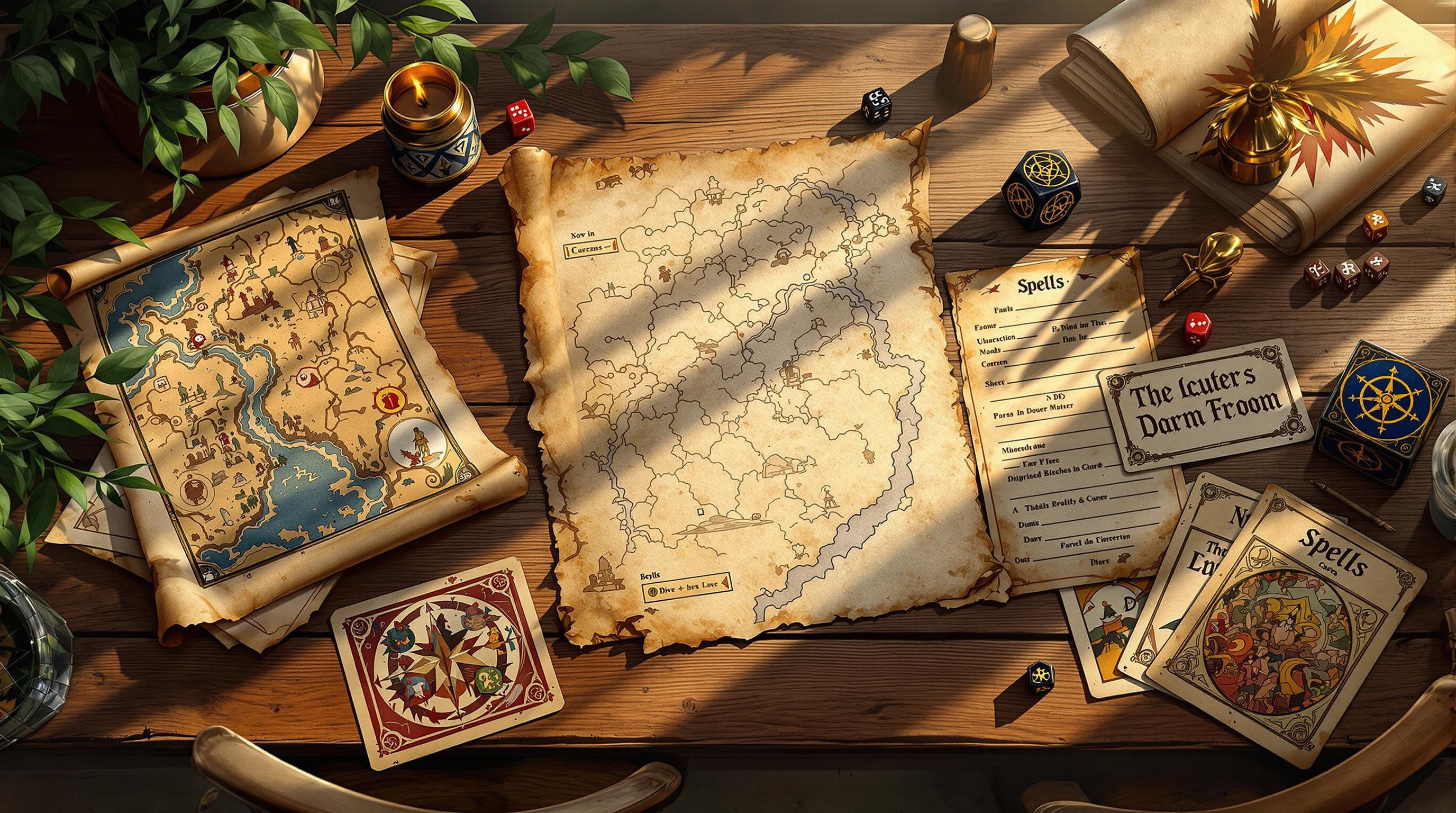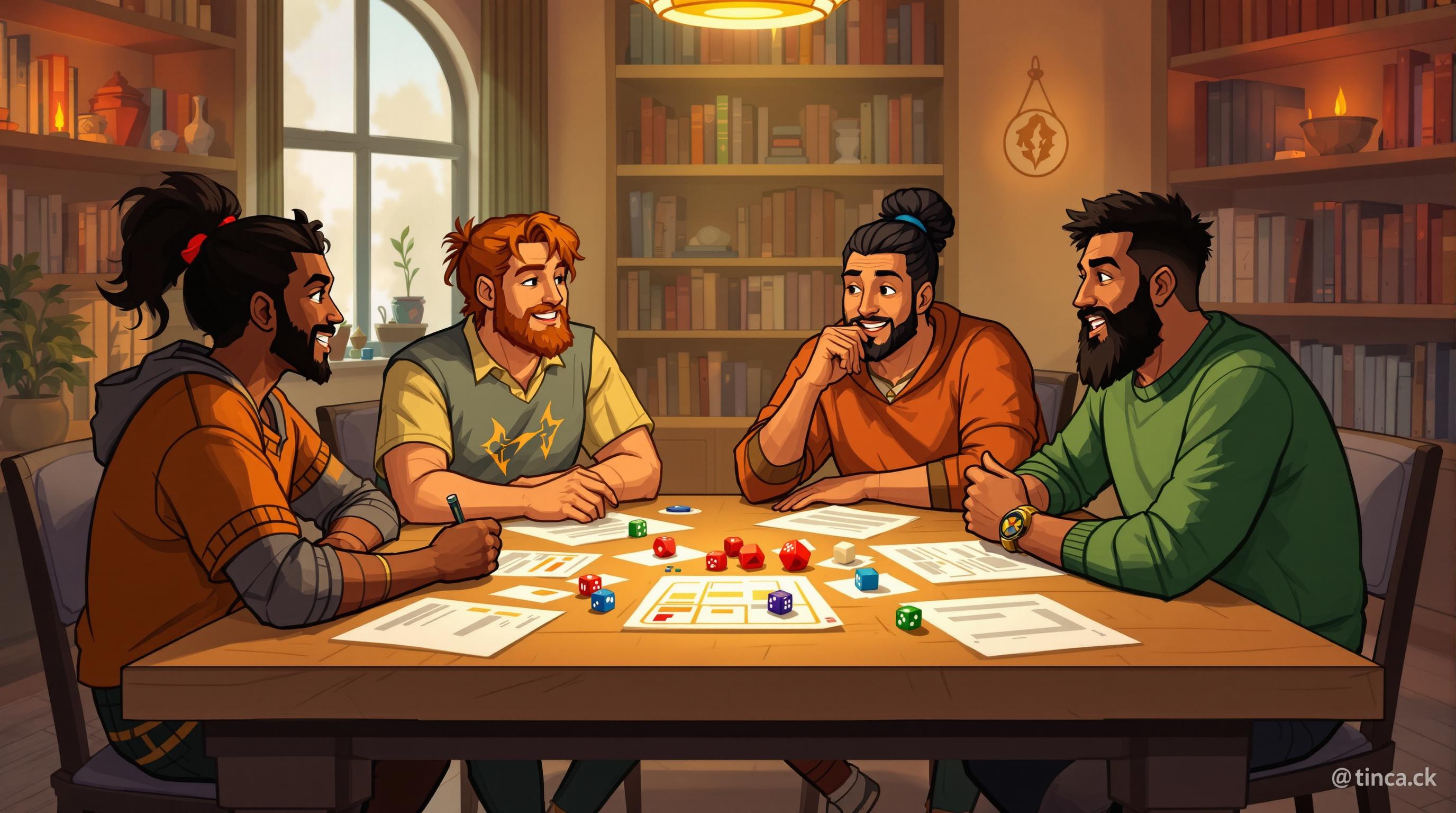Conflicts in tabletop RPG groups can ruin the fun. Whether it's scheduling issues or personality clashes, these disputes often disrupt gameplay and strain relationships. To keep your group united, here’s what you need to know:
- Why disputes happen: Misaligned play expectations or personal conflicts are common culprits.
- How to prevent them: Use Session Zero to set clear rules, keep communication open, and build team spirit through collaborative activities.
- How to handle active disputes: Pause the game, evaluate the situation, and encourage fair, open discussions.
- What to do if issues persist: Focus on group health, enforce boundaries, and protect game quality with structured rules.
How to Resolve Conflict in a DnD Group
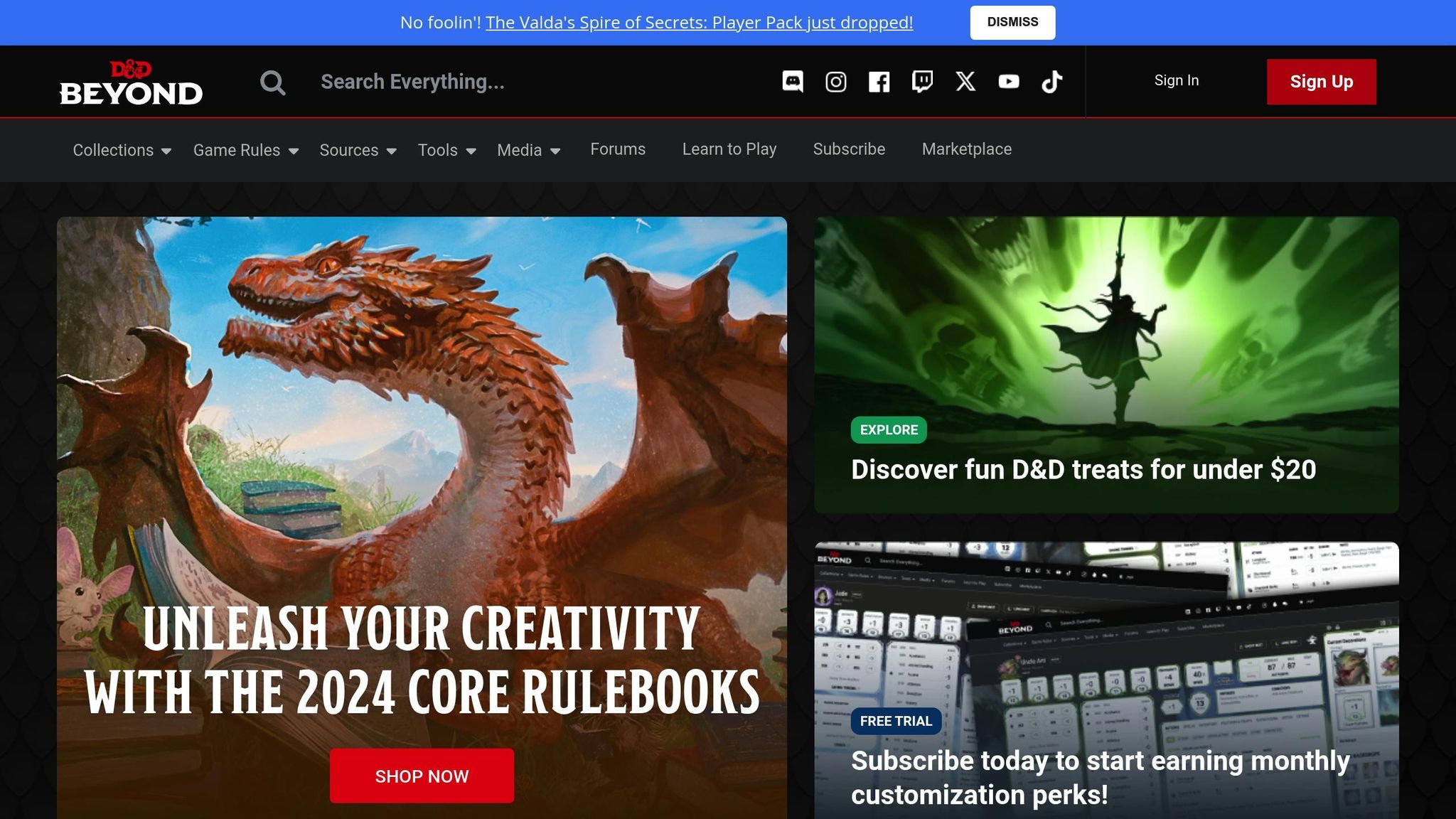
Why Out-of-Game Disputes Happen
Disputes that occur outside of the game often have their roots in unresolved in-game issues, which can spill over into personal conflicts. Understanding these causes helps in addressing problems before they escalate.
Common Causes of Disputes
Here are two main reasons why these conflicts arise:
-
Conflicting Play Expectations
Players may have different views on the game's tone, how rules should be interpreted, or the balance between roleplay and combat. These differences can lead to disagreements that extend beyond the game itself. -
Personal Conflicts
Tensions or misunderstandings that develop during or after sessions can grow into larger issues, straining relationships among players.
Impact of Unresolved Issues
When disputes go unresolved, they can harm the quality of game sessions and weaken the group's dynamic. Misaligned expectations and ongoing conflicts make it harder for players to work together, reducing everyone's enjoyment of the game.
Identifying these issues early can help prevent them from affecting the overall gaming experience.
Preventing Disputes Before They Start
Avoid conflicts before they escalate by setting clear expectations early on. A well-prepared group is key to maintaining a positive gaming experience.
Set Clear Rules at Session Zero
Session Zero is your chance to lay the groundwork for a smooth campaign. Use this meeting to discuss and agree on important topics like:
- Game Content Boundaries: Decide which themes or topics are off-limits.
- Table Etiquette: Define acceptable behavior during sessions.
- Player Involvement: Clarify expectations for attendance and participation.
- Character Creation Guidelines: Ensure character concepts align with the campaign's tone and goals.
Write down the agreed-upon rules so everyone can refer back to them later.
Keep Communication Lines Open
Regular communication is essential for addressing minor issues before they grow into bigger problems. Try these practices to keep the group on the same page:
- Hold quick pre-session check-ins to discuss any concerns.
- Set up a private feedback channel for players to share thoughts with the GM.
- Conduct monthly "temperature checks" to gauge how everyone is feeling about the game.
- Tackle small issues as they arise instead of letting them linger.
Encourage players to share their concerns constructively by focusing on specific situations rather than personal criticism. This helps maintain a collaborative and respectful atmosphere.
Build Team Spirit
Activities that promote teamwork can strengthen the group's connection and reduce the likelihood of disputes. Consider incorporating these ideas:
- Character Development Workshops: Host sessions where players can dive into their characters' backstories and relationships.
- Collaborative World-Building: Let players help design elements of the campaign setting.
- Group Story Planning: Give players opportunities to contribute ideas for future plotlines.
These activities create a sense of shared purpose and investment in the game, making it easier to avoid conflicts down the road. Consistency in fostering teamwork can make all the difference.
sbb-itb-b8b00a5
How to Handle Active Disputes
Pause the game as soon as you notice any out-of-game conflict.
Evaluate the Situation
Take a moment to understand the timing, seriousness, and overall impact of the conflict before stepping in:
- Timing: Pick the right moment - preferably during a natural pause in play - to address the issue.
- Seriousness: Decide whether the matter needs immediate attention or if it can wait.
- Impact: Consider how the conflict is affecting the group and the overall mood.
After evaluating, focus on guiding a balanced conversation.
Encourage Open and Fair Discussions
To ensure a productive discussion:
- Lay out clear rules for how the conversation will proceed.
- Allow everyone involved the same opportunity to share their perspective.
- Stick to discussing the issue itself and avoid personal attacks.
This approach helps create a path toward resolving the conflict effectively.
Dispute Resolution Methods
Return Focus to Group Rules
Center the conversation on the group's established rules to address conflicts without making them personal. By focusing on these shared guidelines, discussions move away from individual issues and toward maintaining collective standards.
When using group rules:
- Highlight the group's shared commitment to these rules and refer to the specific guideline involved.
- Frame the discussion around how to enforce or improve the rules to avoid similar problems in the future.
This approach helps maintain balance and understanding:
| Phase | Action | Purpose |
|---|---|---|
| Review | Identify the relevant rule | Create an objective reference |
| Reflect | Apply the rule to the situation | Establish shared understanding |
| Reset | Plan how to enforce the rule | Reduce the chance of repeat conflicts |
When Resolution Isn't Possible
If mediation doesn't work, take steps to safeguard the gaming experience.
Check Group Health
Evaluate how your group is functioning by paying attention to:
- Group Dynamics: Look for signs that disputes are affecting multiple relationships, which can signal deeper issues with the group.
- Session Atmosphere: Notice if tension is creeping into gameplay and reducing enjoyment.
- Player Engagement: Watch for drops in participation or enthusiasm, which might indicate broader problems.
Monitor these behaviors over 2–3 sessions to get a clearer picture:
| Behavior | Warning Signs | Action Needed |
|---|---|---|
| Communication | Players avoiding interaction | Facilitate structured discussions |
| Attendance | Frequent last-minute cancellations | Address commitment issues |
| Participation | Reduced roleplay engagement | Evaluate individual comfort levels |
| Social Dynamic | Formation of opposing subgroups | Reinforce group boundaries |
Once you understand the group dynamics, focus on keeping the game itself intact.
Protect Game Quality
If conflicts continue, take steps to ensure the game remains enjoyable:
-
Set Clear Boundaries
- Define strict rules for separating in-game and out-of-game interactions.
- Limit pre-game socializing to avoid unnecessary friction.
- Plan structured breaks to reduce chances for conflict.
-
Modify the Game Structure
- Introduce structured turn-taking to keep gameplay orderly.
- Clearly define player authority and responsibilities.
- Document key decisions to avoid misunderstandings later.
Conclusion
Maintaining game quality and resolving disputes effectively are essential for keeping tabletop gaming groups united. Handling out-of-game conflicts requires a mix of prevention and active management. By setting up clear boundaries between in-game and out-of-game interactions and using structured dispute resolution methods, groups can stay focused on what truly matters: enjoying their time together.
Open communication and trust are the foundation of strong gaming groups. With clear guidelines in place, players can focus on their shared adventures without unnecessary distractions.
Find Games on TTRPG Games Directory
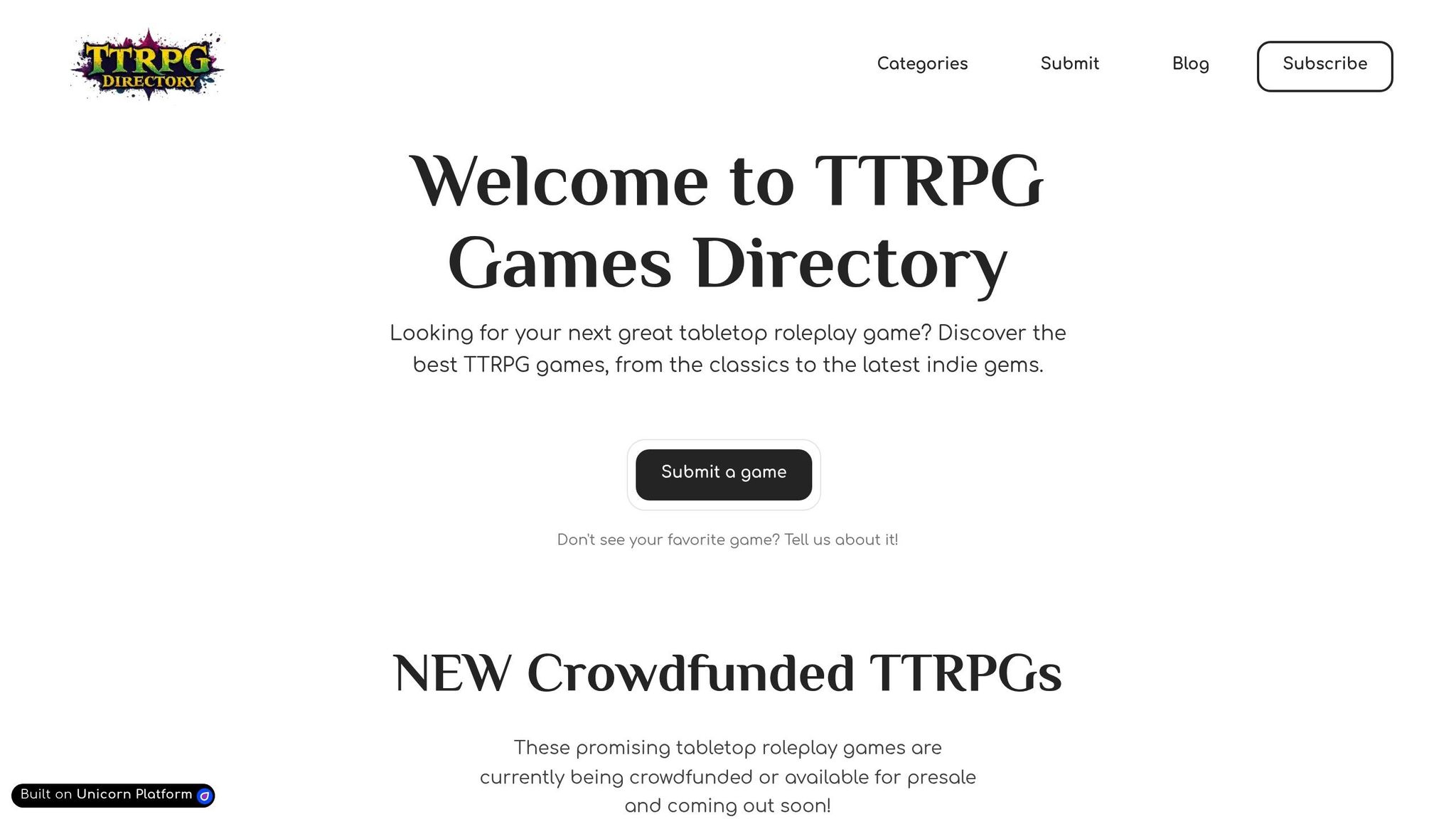
Picking the right game can make a big difference in reducing tension and strengthening group bonds. The TTRPG Games Directory is a helpful tool for discovering games that fit your group’s preferences and play styles. Detailed descriptions cover important aspects like game mechanics and social interaction levels, making it easier to find something that suits your group dynamic.
The directory also offers a weekly newsletter featuring 10 new games, helping you stay updated with fresh options that could better fit your group’s changing needs.
Here’s how the directory supports group harmony:
| Feature | How It Helps Your Group |
|---|---|
| Genre Categories | Aligns the group on themes everyone enjoys |
| Mechanics Descriptions | Prepares players for the game's complexity |
| Game Style Details | Matches the game focus with player expectations |
| Regular Updates | Offers new options if your current game isn’t working |
